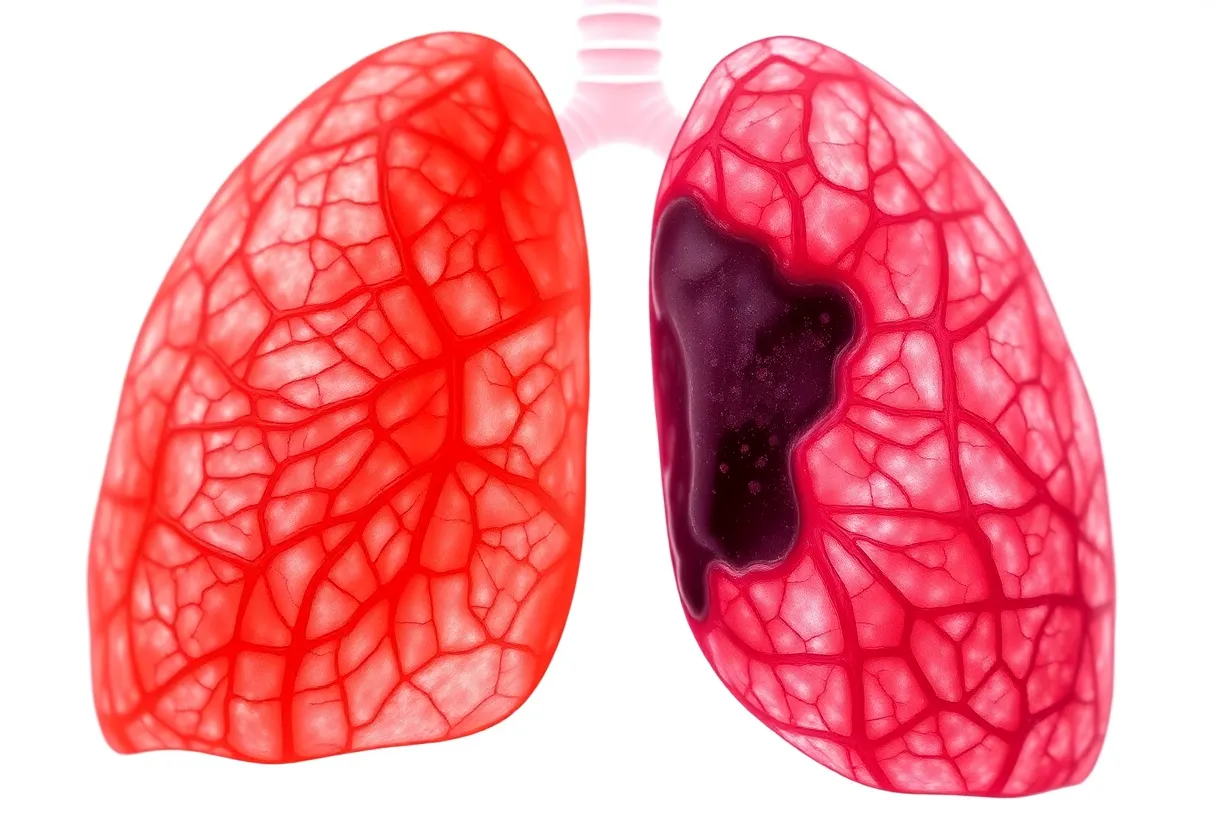News Summary
Asbestos exposure is increasingly recognized as a severe health hazard, leading to mesothelioma, an aggressive cancer diagnosed in about 3,000 people in the U.S. yearly. This article explores the four types of mesothelioma, challenges in its diagnosis, survival rates, treatment options, financial burdens, and the importance of raising awareness about asbestos-related risks. With ongoing research and heightened public awareness, there is hope for improved outcomes for patients affected by this devastating disease.
New Insights Into Mesothelioma: A Hidden Tragedy Linked to Asbestos Exposure
As the world becomes increasingly aware of the detriments of asbestos exposure, the fight against mesothelioma – a rare and aggressive cancer – continues to grow. Responsible for an estimated 3,000 diagnoses in the U.S. each year, mesothelioma is a cancer of the mesothelium, the thin tissue layer covering the lungs, abdomen, and heart. This devastating disease has a direct link to asbestos, a material widely used in construction and manufacturing before its dangers were widely recognized.
Types of Mesothelioma: The Four Faces of an Aggressive Disease
There are four main types of mesothelioma – pleural, peritoneal, pericardial, and testicular, each classified based on its origin within the body. Among these, pleural mesothelioma stands out as the most common, accounting for approximately 70-80% of cases. This predominance is typically a result of prolonged exposure to asbestos fibers while working in industries such as construction, shipbuilding, and manufacturing.
The Silent Symptoms: Delayed Detection is a Major Concern
A primary challenge in diagnosing mesothelioma lies in its symptoms, which often mimic those of common illnesses, creating a dangerous window for late detection. Symptoms such as chest pain, shortness of breath, cough, fatigue, and weight loss can take anywhere from 20 to 50 years to manifest after the initial exposure to asbestos. As the disease progresses, patients may experience advanced symptoms including persistent cough, night sweats, and severe chest pain. By the time these symptoms surface, the cancer is often diagnosed at later stages – with grave implications for treatment and prognosis.
Understanding Prognosis and Survival Rates
The average life expectancy for individuals diagnosed with malignant mesothelioma is grim, typically ranging from 4 to 18 months. However, factors such as the cancer stage, type, patient age, overall health, and treatment options pursued can significantly alter outcomes. Early-stage diagnoses (stage 1) can lead to improved life expectancy, averaging around 21 months, while stage 4 patients may only see about 12 months. The five-year survival rate hovers around 10%, emphasizing the critical importance of early detection.
Mesothelioma tumors themselves can vary, with three distinct cell types impacting prognosis. Epithelioid cells, although characterized by slower growth rates, tend to offer a better prognosis, while sarcomatoid cells are known for their rapid proliferation and a more dire outcome. Biphasic tumors, containing a mix of both types, present a prognosis dependent on the ratio of these cell types.
Conventional Treatment and Support for Patients
Facing mesothelioma requires a multi-faceted approach. Conventional treatment options consist of surgery, chemotherapy, radiation, and immunotherapy, all of which must be tailored to meet the specific needs of patients. Additionally, palliative care is an essential component, aiming to relieve symptoms and enhance quality of life. Patients often turn to alternative therapies, such as massage and pain medication, to manage their condition.
The Financial Burden: Seeking Legal Compensation
As treatment costs for mesothelioma can spiral upwards of $400,000 per year, many families find themselves grappling with financial strain while coping with the emotional toll of the diagnosis. This crisis has led affected individuals to seek legal compensation from asbestos trust funds and pursue mesothelioma lawsuits, often without the need for court appearances. Law firms specializing in mesothelioma cases have recovered billions for patients and families, allowing them to focus on treatment rather than financial woes.
A Call for Awareness and Research
As new research continues to emerge, the fight against mesothelioma remains crucially connected to increased public awareness regarding the dangers of asbestos exposure. Misdiagnosis is a prevalent issue, with studies indicating that nearly 22.6% of mesothelioma patients were initially misdiagnosed with less aggressive diseases. Therefore, ongoing education about potential symptoms and links to asbestos is vital.
Mesothelioma may be a silent killer, but it does not have to be a hidden tragedy any longer. With advances in treatment and widespread awareness, the hope for early detection and better outcomes continues to grow.
Deeper Dive: News & Info About This Topic
HERE Resources
New Asbestos Framework Aims to Tackle Hazards Across the North of England
Family Seeks Justice Following Mesothelioma Diagnosis
79-Year-Old Appeals for Help After Asbestos Diagnosis
Warwickshire Man Shares Asbestos Exposure Struggles
The Shocking Decline of Asbestos Use in the U.S.
Family Fights for Justice After Heathrow Security Guard’s Asbestos-Related Death
Tragic Passing of TV Presenter Charles Norman Rae from Cancer
Leigh Day’s Charity Walks Highlight Fight Against Asbestos Diseases
A Silent Danger: The Asbestos Crisis in Schools
New Asbestos Issues in Three Schools Raise Alarm



















